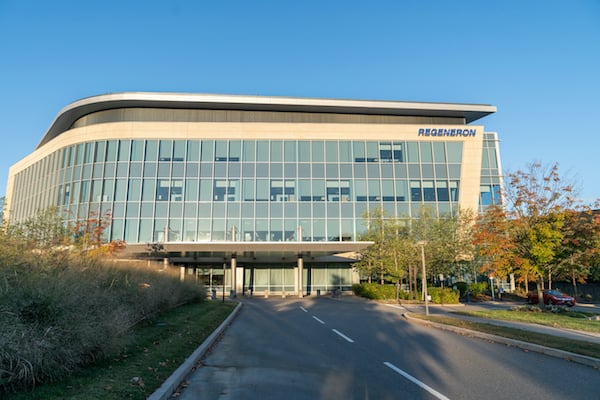
Regeneron and CytomX Therapeutics have entered into a collaboration and licensing agreement to create conditionally-activated investigational bispecific cancer therapies, the companies announced.
Under the terms of the agreement, CytomX will receive an upfront payment of $30m from Regeneron and will be eligible to receive future target nomination payments and milestones of up to $2bn, as well as tiered global net sales royalties.
The partners will utilise CytomX’s Probody and Regeneron’s Veloci-Bi platforms, aiming to enable the development of investigational next-generation bispecific immunotherapies.
The collaboration is strategically focused on applying CytomX’s biologic masking strategies to develop investigational Regeneron bispecifics, which remain inactive until activated by proteases in the tumour microenvironment.
This technology, the companies say, has the potential to ‘widen the therapeutic window’ and help minimise off-target effects for these next-generation T-cell engaging therapies and potentially address tumour types historically unresponsive to immunotherapy.
“This collaboration will enable Regeneron and CytomX to combine our collective oncology expertise with two premier platforms – Probody and Veloci-Bi – to develop novel immunotherapies and research their potential to transform patient lives,” said John Lin, senior vice president, immuno-oncology and head of bispecifics, at Regeneron.
Also commenting on collaboration, Sean McCarthy, chief executive officer and chairman of CytomX, said: “We are thrilled that our scientific expertise has attracted Regeneron as our newest collaborator, and we look forward to working closely together to further optimise T-cell engager strategies and push the boundaries of cancer immunotherapy to new levels.”
CytomX’s pipeline currently comprises seven therapeutic candidates across multiple treatment modalities including antibody-drug conjugates, T-cell engaging bispecific antibodies and immune modulators such as cytokines and checkpoint inhibitors.
The company announced positive phase 1 results for BMS-986249, a Probody Therapeutic version of ipilimumab which the company is jointly developing with Bristol Myers Squibb (BMS), in September.
McCarthy said that the candidate appeared to be “tolerated at higher doses than traditional ipilimumab dosing” and the company was “encouraged by the report of a complete response in melanoma and a case study of a partial response in microsatellite-stable colorectal cancer”.
CytomX’s clinical pipeline also includes CX-2029, an investigational conditionally activated antibody-drug conjugate developed in collaboration with AbbVie, which has demonstrated encouraging antitumour activity in patients with squamous non-small cell lung cancer.
The company is also developing CX-904, a conditionally activated T-cell-engaging bispecific antibody targeting the epidermal growth factor receptor on tumour cells and the CD3 receptor on T-cells, with Amgen, as well as a second CTLA-4-targeting Probody therapeutic with BMS, BMS-986288.




